Implantology consists of replacing missing teeth by artificial roots of titanium (implants)
Through the phenomenon of osseointegration (3 to 6 months depending on clinical situations), the implants will integrate into the bone and allow all types of prostheses to be fixed.
During this healing period a temporary prosthesis (fixed or removable) can be placed in order to restore the chewing function and esthetics.
Implant treatment procedure
Each person is unique. A complete and precise pre-implantation examination will be carried out.
How dental implant surgery is performed depends on the type of implant and the condition of your jaw confirmed by a 3D scan.
Depending on the complexity of the clinical case, other specialists such as orthodontists and maxillofacial surgeons may be asked to give their opinion in order to have a global aesthetic and functional approach.
Most of the implants are performed under local anesthesia with adequate precautions necessary for each patient.
There are very rarely medical contraindications.
We will get a close collaboration with your doctor to ensure a safe treatment with an optimal result.
Before the treatment, a plan and a detailed estimate with all the necessary information will be given to patients so that an appropriate decision can be made.
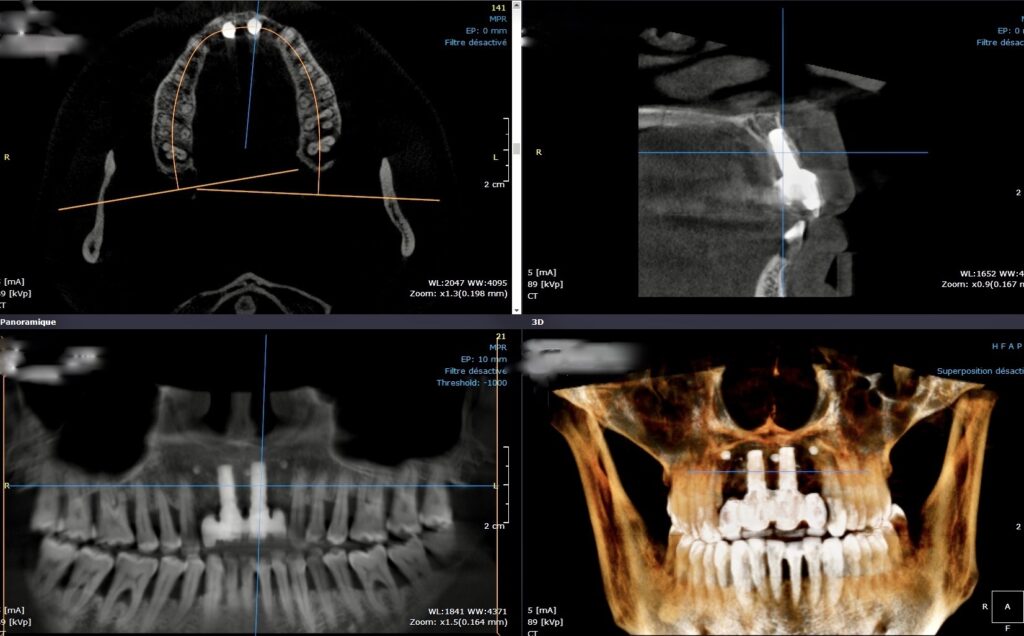
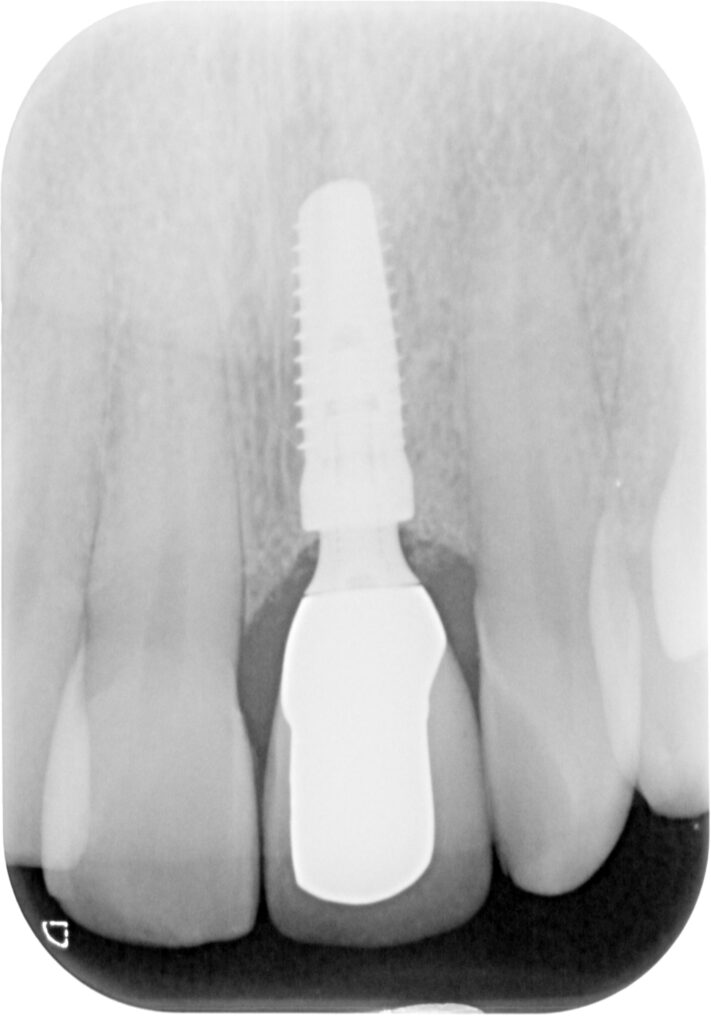
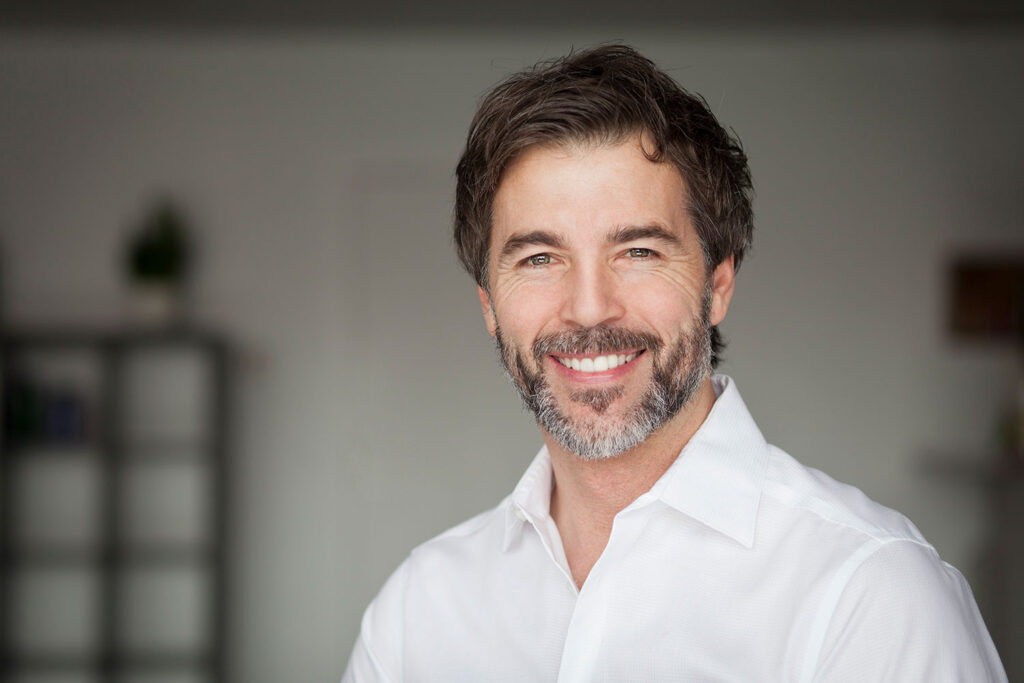
"Minimally Invasive" Surgery
The goal of the minimally invasive approach is to reduce adverse effects, such as pain or swelling, without compromising the treatment outcome.
In minimally invasive surgery, we use new technologies and new implant materials to improve the regeneration of hard and soft tissues.
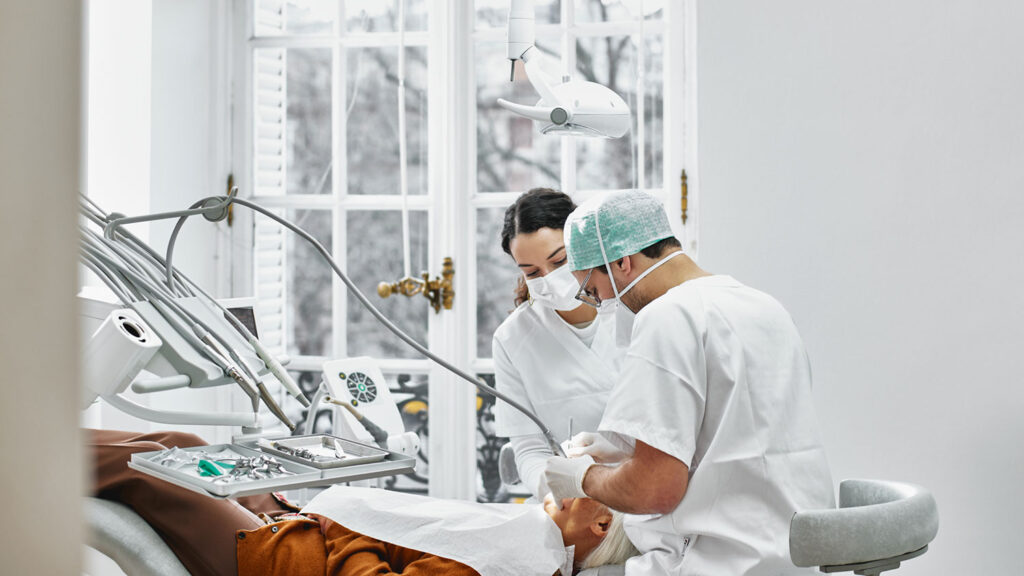
Microsurgery
Dental microsurgery allows chirurgical precision and good wound healing to obtain a better aesthetic result.
Using fine absorbable sutures with minimal tension will avoid negative effects to the soft tissue and will improve the healing process.
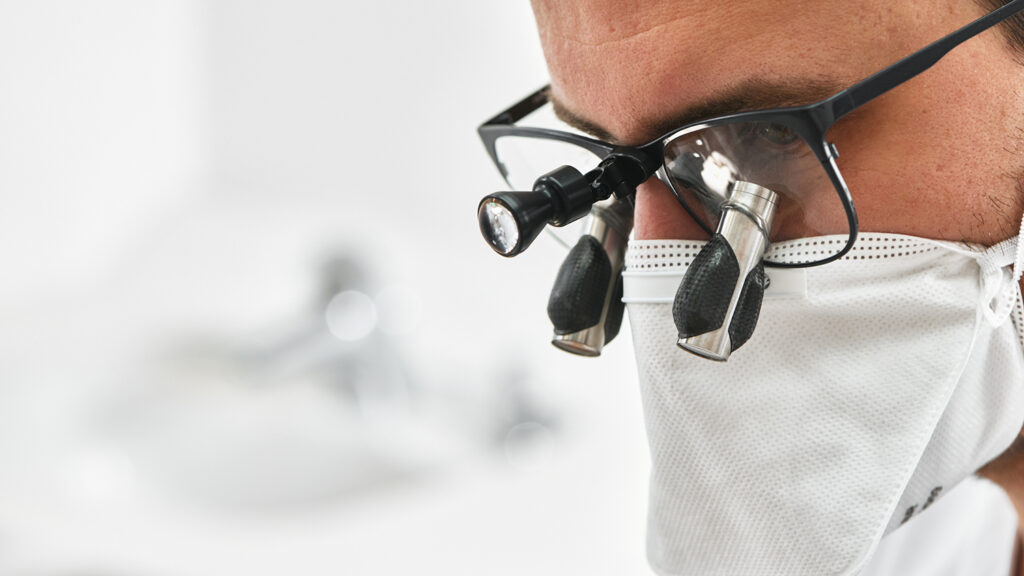
Success rate of implants
Clinical experience in implantology over more than 50 years has made it possible to adapt this technology according to clinical cases to obtain a lasting result over time.
The bone integration of implants has improved thanks to the new implant surfaces.
In general, dental implants have a success rate of up to 98%-99%.
Studies have been done on long term success rate by Lekholm et al (2006):
- The duration of the study was 20 years.
- The implant survival rate was 91% at 20 years.
- A patient receiving implants has 9 out of 10 chances of having his implants 20 years later.
- In many cases implants are often the most reliable treatment.
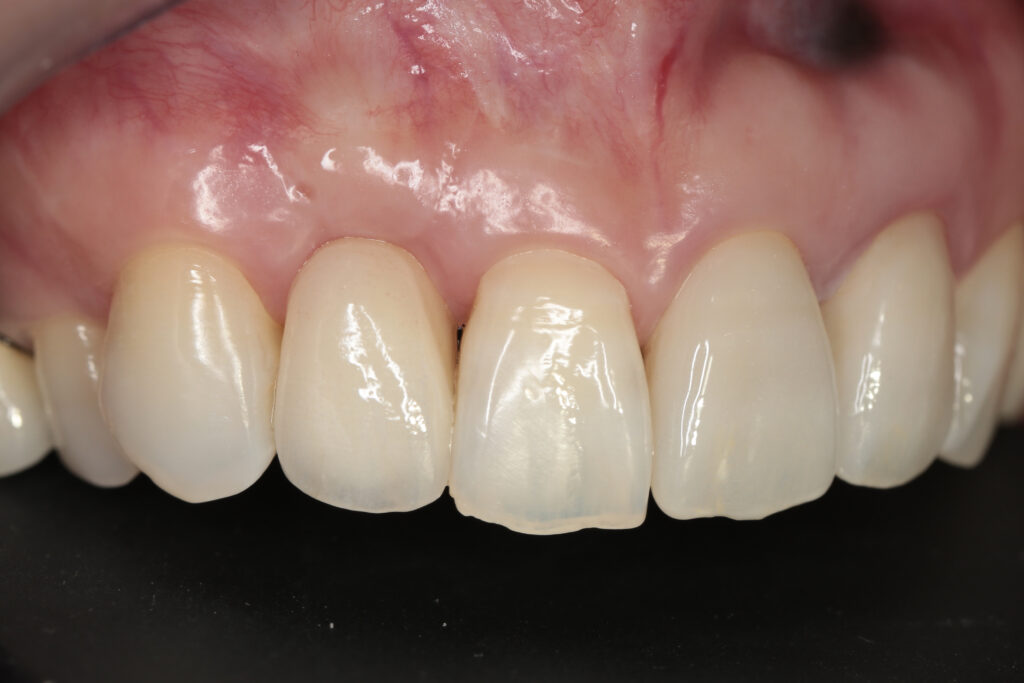
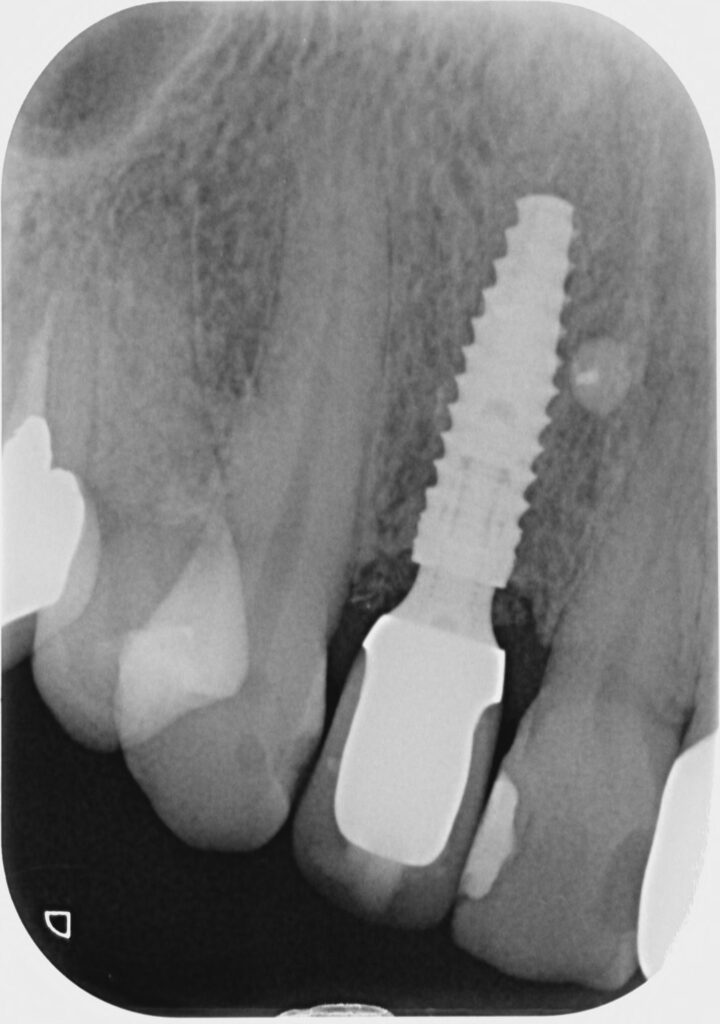
Bone and gum grafts
There are several types of bone and gum grafts (gingival grafts) depending on the defects to be corrected.
These grafts can take place before or during surgical implants.
In the aesthetic area, these grafts are recommended to obtain an optimal result.
In most cases, implants can be placed in the maxilla despite a small amount of bone tissue. A bone graft with sinus elevation can be performed to increase bone volume.
In some cases, the sinus needs to be checked by an otolaryngologist.
Depending on the indication, we will do everything possible to reduce the number of interventions by combining the bone grafting procedure and the placement of implants.
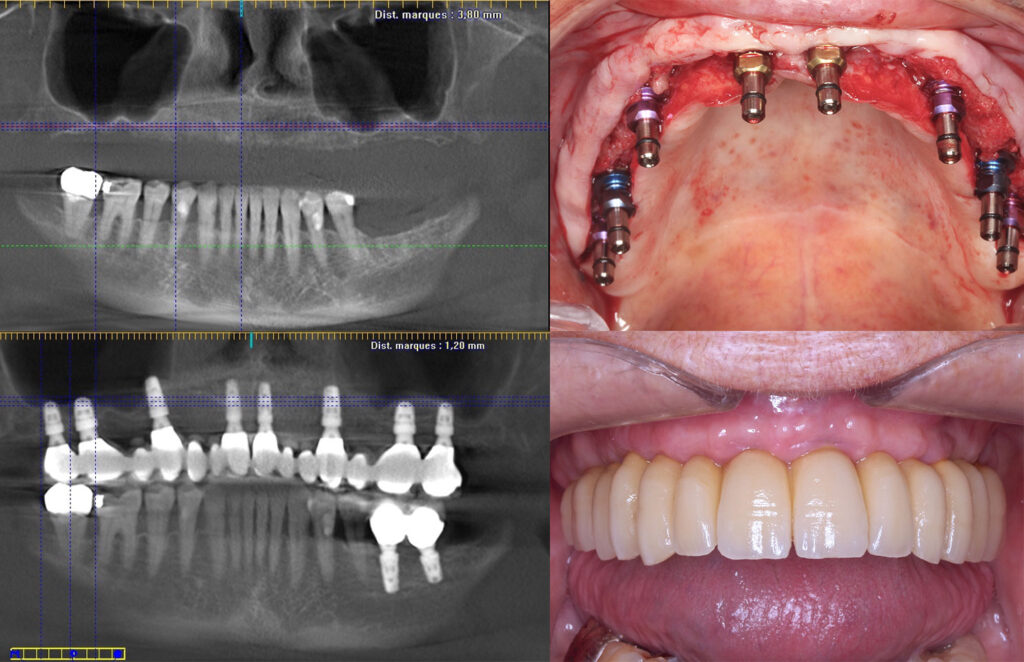
Immediate loading
Immediate loading can be carried out if the indication and surgical protocol are correctly defined.
In the event of a favorable situation (sufficient bone and gum) your oral surgeon can place the implant, the abutment and a temporary crown.
This transitional period makes it possible to validate the patient’s smile, chewing and speaking.
The obvious advantage of this procedure is that it avoids the patient having to have a removable prosthesis (psychologically traumatic) and that it considerably reduces the duration of treatment.
A detailed diagnosis based on a prosthetic study and 3D radiography is recommended.
Extraction, Implantation
It is entirely possible to place an implant if the bone and gingival structure is sufficient.
The tooth socket must be carefully cleaned to avoid postoperative infections.
Simultaneously, this process may involve bone grafting.
Immediate loading in a fresh extracted socket
Immediate implant loading procedures require a minimal amount of bone and the placed implant must be able to withstand minimal chewing force.
The implant must be perfectly stable initially in the bone and during the osseointegration period, it must not be subjected to mechanical stress.
If the implant moves more than 100 microns, it may fail.
Short dental implants & Narrow dental implants
These implants avoid the need for a pre-implant bone graft while ensuring good long-term stability of the prosthesis.
Several scientific studies have indicated that these implants are comparable to conventional implants.
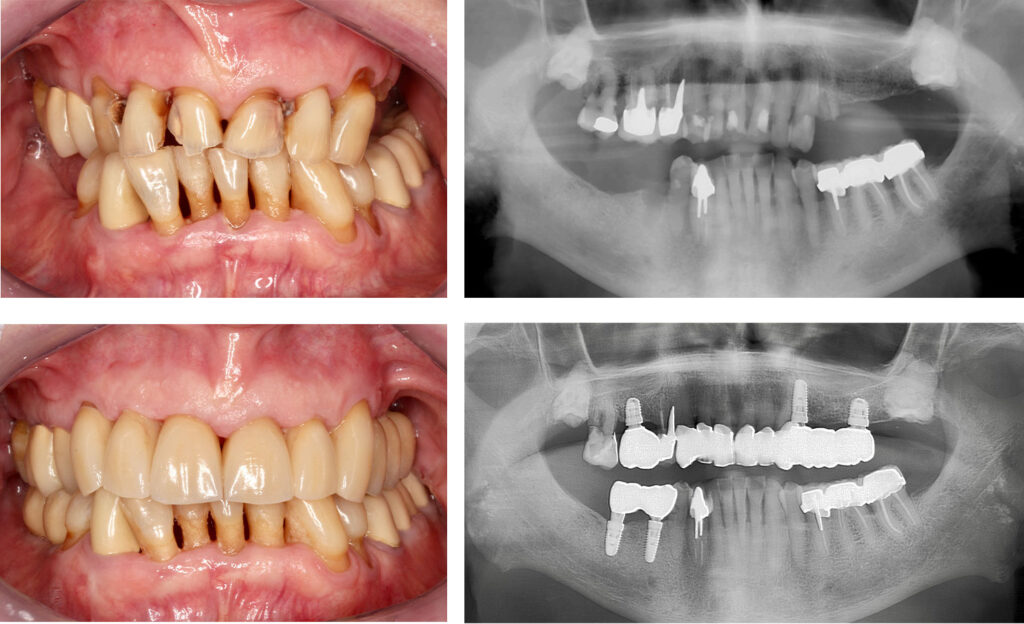
Implant prothetics
Implant prosthetics can be realized by an entirely new procedure exploiting digital technology that improves fit precision and strength.
CAD/CAM technology avoids all the inaccuracies linked to the molding of the frame for the manufacture of prostheses on fixed implants.
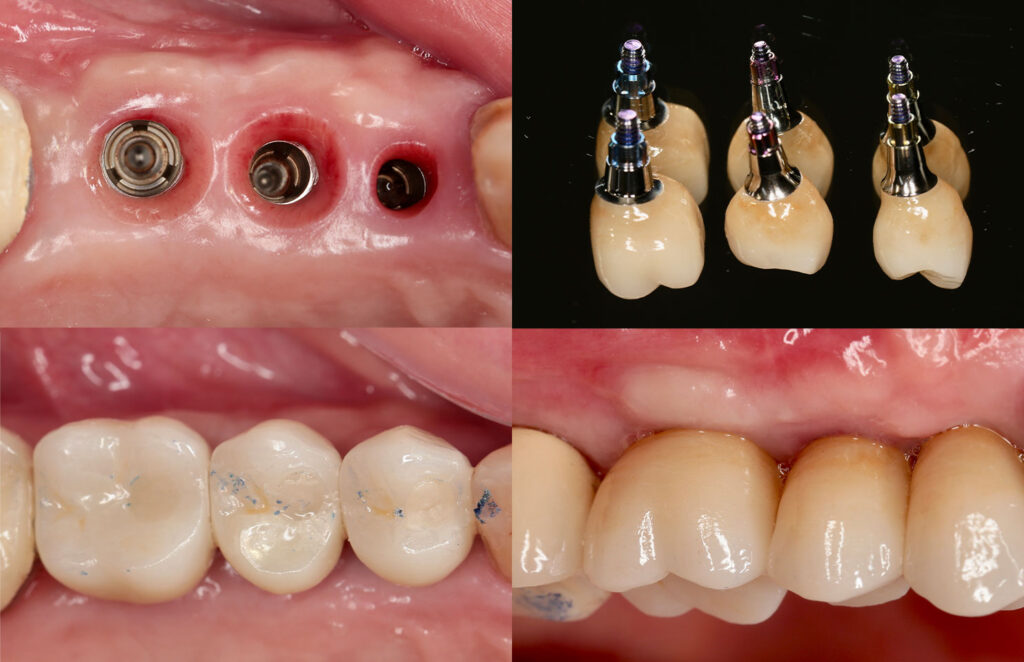
Dental implants failure
Despite a 98% success rate, the majority of complications occur during the first month of healing.
The cause is often the lack of bone integration due to the interposition of connective tissue.
The implant becomes mobile and painful.
The implant must be removed and the hard tissue (bone) cleaned.
In the event of implant failure, a new procedure can be performed several weeks later.

